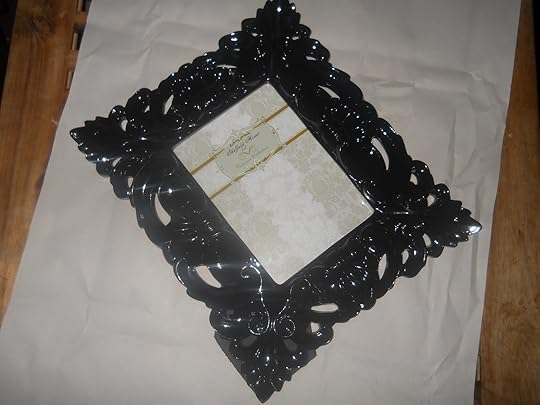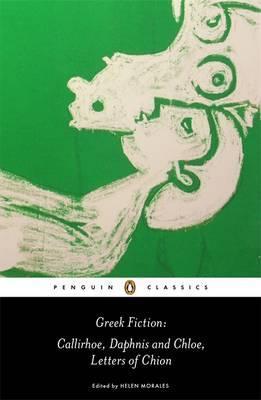Michael Swanwick's Blog, page 184
September 13, 2012
Viewing Eagles
.

Whenever I have an urge to see bald eagles -- not to have a good chance of seeing, but to see -- I drive to Conowingo Dam in Maryland. They hang out there in great numbers, majestic and lazy, waiting for the people who run the dam to bleed off excess water, which churns out at the bottom of the dam and is rich with stunned and helpless fish.
When I was a boy, I was mad about (along with a hundred other things) birds. Alas, I almost never saw an egret, a red tailed hawk, or a vulture because DDT, working its way up the ecosystem, had killed most of them. Bald eagles? Extinct where I lived.
When the connection between DDT and the extinction of the top avian carnivores was understood, the pesticide was banned and, after a lapse of some decades, the top avian carnivores returned.
Today I'm on the road again. I have the urge to see bald eagles. So I'm going to Conowingo Dam, where I will see many.
There's a moral to this, and I think we should all teach it to our children: It can get better . All we have to do is identify the problem, pay for the solution, and stay the course.
End of sermon. Now, if you'll excuse me . . .
I have an urge to see eagles.
*

Whenever I have an urge to see bald eagles -- not to have a good chance of seeing, but to see -- I drive to Conowingo Dam in Maryland. They hang out there in great numbers, majestic and lazy, waiting for the people who run the dam to bleed off excess water, which churns out at the bottom of the dam and is rich with stunned and helpless fish.
When I was a boy, I was mad about (along with a hundred other things) birds. Alas, I almost never saw an egret, a red tailed hawk, or a vulture because DDT, working its way up the ecosystem, had killed most of them. Bald eagles? Extinct where I lived.
When the connection between DDT and the extinction of the top avian carnivores was understood, the pesticide was banned and, after a lapse of some decades, the top avian carnivores returned.
Today I'm on the road again. I have the urge to see bald eagles. So I'm going to Conowingo Dam, where I will see many.
There's a moral to this, and I think we should all teach it to our children: It can get better . All we have to do is identify the problem, pay for the solution, and stay the course.
End of sermon. Now, if you'll excuse me . . .
I have an urge to see eagles.
*
Published on September 13, 2012 00:30
September 12, 2012
Perspective
.

Where were you on 9-11? Frank Culbertson was in orbit -- the only American to see the disaster from that vantage. He saw the plume of smoke from space.
My father, who was as good a man as I have ever known, was an engineer for General Electric. He worked on (among other things) space flight and ICBMs. Which is to say that he was involved in the best and worst of the American Century. Astronaut Culbertson holds a similar, though less morally complex, position in the Twenty-First Century.
You can read about it here.
*

Where were you on 9-11? Frank Culbertson was in orbit -- the only American to see the disaster from that vantage. He saw the plume of smoke from space.
My father, who was as good a man as I have ever known, was an engineer for General Electric. He worked on (among other things) space flight and ICBMs. Which is to say that he was involved in the best and worst of the American Century. Astronaut Culbertson holds a similar, though less morally complex, position in the Twenty-First Century.
You can read about it here.
*
Published on September 12, 2012 18:49
September 11, 2012
The Writer Must Always Get Paid
.
When my son Sean was a boy, he had a zine, The High Flying News , which went out to all of his friends. It ran for over a hundred issues and went to probably twenty-five copies at the peak of its circulation. Now and then one of his buddies would send him an article or story or artwork for the zine, and when they did, I always sent them extra contributor's copies, along with five dollars in payment. Marianne and I were very careful to inculcate Sean with what I consider to be a core moral value: The artist always gets paid. I put special emphasis on visual artists, since they're so often ripped off, cheated, and badly treated. But it applies equally to writers. We're artists too.
Above is a promotional snippet for the Harlan Ellison documentary Dreams With Sharp Teeth . His opinion on this matter is intemperate, angry, obscene -- and absolutely correct.
This cannot be said too often. What separates the professional writer from the amateur is money. If you're a professional, money flows to you. If you're an amateur, money flows from you. It's as simple as that.
*
When my son Sean was a boy, he had a zine, The High Flying News , which went out to all of his friends. It ran for over a hundred issues and went to probably twenty-five copies at the peak of its circulation. Now and then one of his buddies would send him an article or story or artwork for the zine, and when they did, I always sent them extra contributor's copies, along with five dollars in payment. Marianne and I were very careful to inculcate Sean with what I consider to be a core moral value: The artist always gets paid. I put special emphasis on visual artists, since they're so often ripped off, cheated, and badly treated. But it applies equally to writers. We're artists too.
Above is a promotional snippet for the Harlan Ellison documentary Dreams With Sharp Teeth . His opinion on this matter is intemperate, angry, obscene -- and absolutely correct.
This cannot be said too often. What separates the professional writer from the amateur is money. If you're a professional, money flows to you. If you're an amateur, money flows from you. It's as simple as that.
*
Published on September 11, 2012 00:30
September 10, 2012
Working
.
A quiet weekend. I wrote a story yesterday, but that's about it. Now, however, to settle down and wrong long and well.
In the meantime, here's a nifty NASA piece swiftly recapping just what it takes to put a probe on Mars.
*
A quiet weekend. I wrote a story yesterday, but that's about it. Now, however, to settle down and wrong long and well.
In the meantime, here's a nifty NASA piece swiftly recapping just what it takes to put a probe on Mars.
*
Published on September 10, 2012 07:06
September 8, 2012
The Frame Of Things To Come
.

This is a picture frame I picked up this afternoon. I saw it and instantly came up with what I thought would be a pretty nifty thing to do with it. So I bought the frame, brought it home, and started shaping the project in my head.
You'll see the fruits of this . . . oh, let's say the end of the month. October 1 at the latest.
You may consider this a teaser.
*

This is a picture frame I picked up this afternoon. I saw it and instantly came up with what I thought would be a pretty nifty thing to do with it. So I bought the frame, brought it home, and started shaping the project in my head.
You'll see the fruits of this . . . oh, let's say the end of the month. October 1 at the latest.
You may consider this a teaser.
*
Published on September 08, 2012 14:21
September 7, 2012
Uncharacteristically . . .
.I find I have nothing to say. So here are three quotes, almost at random, from my commonplace-book:
Love in action is a harsh and dreadful thing compared to love in dreams.
--Dostoevsky
To write well, to write passionately, to be less inhibited, to be warmer, to be more self-critical, to recognize the power of as well as the force of lust, to write, to love.
-- John Cheever, Journals
You must be an intellectual. No normal person would say a thing like that.
-- George Orwell, overheard at a party
*
Love in action is a harsh and dreadful thing compared to love in dreams.
--Dostoevsky
To write well, to write passionately, to be less inhibited, to be warmer, to be more self-critical, to recognize the power of as well as the force of lust, to write, to love.
-- John Cheever, Journals
You must be an intellectual. No normal person would say a thing like that.
-- George Orwell, overheard at a party
*
Published on September 07, 2012 14:44
September 6, 2012
My Voice -- Or Yours! -- In The Philadelphia Skies
.
Some years back, returning from a trip, I found myself driving down the Benjamin Franklin Parkway in Philadelphia at one in the morning. It was foggy and there was almost no traffic. But in the sky was a lattice of crisp lines drawn by a series of lasers for an art installation I hadn't heard about.
My God, but it was beautiful.
I expect something similar -- but far more kinetic -- from Rafael Lozano-Hemmer's installation Open Air, which will be playing on the Parkway every night from eight to eleven p.m., starting September 20 and ending October 17.
Voice clips are currently being solicited from the public. The most popular of these will be analyzed by a computer program and then rendered in motion and pattern by 24 of the most powerful searchlights on the planet. Thus creating "a meshed canopy of light" in the sky.
If that's not cool, what is?
Instructions for how you can submit a voice clip can be found here. Me, I've got to decide what I want to have written in the sky.
*
Some years back, returning from a trip, I found myself driving down the Benjamin Franklin Parkway in Philadelphia at one in the morning. It was foggy and there was almost no traffic. But in the sky was a lattice of crisp lines drawn by a series of lasers for an art installation I hadn't heard about.
My God, but it was beautiful.
I expect something similar -- but far more kinetic -- from Rafael Lozano-Hemmer's installation Open Air, which will be playing on the Parkway every night from eight to eleven p.m., starting September 20 and ending October 17.
Voice clips are currently being solicited from the public. The most popular of these will be analyzed by a computer program and then rendered in motion and pattern by 24 of the most powerful searchlights on the planet. Thus creating "a meshed canopy of light" in the sky.
If that's not cool, what is?
Instructions for how you can submit a voice clip can be found here. Me, I've got to decide what I want to have written in the sky.
*
Published on September 06, 2012 05:38
September 5, 2012
Can You Be Saved From the Writing Life? Take This Simple Test and Find Out!
.

I'm on the road again. But, knowing I'd be away, I've devised a simple test you can use to determine whether it's possible for you to be saved from the drudgery and humiliation of becoming a professional writer.
Most people harbor the notion of writing for a living, even if the thought appears fleetingly and then goes mercifully away. But a lot of us take that notion very seriously indeed -- and a certain fraction of us waste a great deal of time trying because we have no idea whether we've got what it takes.
Well, I can't tell you whether you'll succeed as a writer. But I can tell you if you have no business trying. Simply take the following 100% irony-free three question test.
Ready? Here goes:
1. Does the prospect of reading at least one hundred (and probably a lot more) full-length books a year fill you with joy?
2. Do you enjoy doing research?
3. Do you enjoy writing?
That was easy, wasn't it? Now to analyze your answers:
1. The proper answer is Yes. Not only are you going to have to read an enormous number of books as research for your own writing and even more to find ideas in, but if you don't keep current with what's being written in your genre, you're going to fall out of touch with it and editors are going to lose interest in you.
2. The proper answer is Yes. By research here, I mean not only book learning but going to places to make observations, interviewing people who do the kind of work your characters do, lying down in parking lots to discover what your fatally-shot protagonist is going to see in his dying seconds . . . Obviously, science fiction requires research, but so do mysteries (so your villain doesn't put a silencer on a revolver), fantasy (especially if horses are involved; people who love horses are not a forgiving breed), or pretty much anything else. Oh, I suppose writers of erotica don't really need to do research. But they'd be mad not to.
3. The proper answer is It doesn't matter. I personally loathe writing. But the desire to have written something is sufficiently strong to make me sit down to the computer and type. It's entirely possible, of course, that there are writers who enjoy writing. But the thought of finding one is so depressing that I've never actually looked.
There you have it. If you didn't answer Yes to the first two questions, you probably can't become a writer and you wouldn't enjoy it if you did.
And I've just saved you a great deal of time and effort.
Above: That is not a trick shot. Those really are some of the piles of books blocking access to my bookshelves. If this appalls you . . .
*

I'm on the road again. But, knowing I'd be away, I've devised a simple test you can use to determine whether it's possible for you to be saved from the drudgery and humiliation of becoming a professional writer.
Most people harbor the notion of writing for a living, even if the thought appears fleetingly and then goes mercifully away. But a lot of us take that notion very seriously indeed -- and a certain fraction of us waste a great deal of time trying because we have no idea whether we've got what it takes.
Well, I can't tell you whether you'll succeed as a writer. But I can tell you if you have no business trying. Simply take the following 100% irony-free three question test.
Ready? Here goes:
1. Does the prospect of reading at least one hundred (and probably a lot more) full-length books a year fill you with joy?
2. Do you enjoy doing research?
3. Do you enjoy writing?
That was easy, wasn't it? Now to analyze your answers:
1. The proper answer is Yes. Not only are you going to have to read an enormous number of books as research for your own writing and even more to find ideas in, but if you don't keep current with what's being written in your genre, you're going to fall out of touch with it and editors are going to lose interest in you.
2. The proper answer is Yes. By research here, I mean not only book learning but going to places to make observations, interviewing people who do the kind of work your characters do, lying down in parking lots to discover what your fatally-shot protagonist is going to see in his dying seconds . . . Obviously, science fiction requires research, but so do mysteries (so your villain doesn't put a silencer on a revolver), fantasy (especially if horses are involved; people who love horses are not a forgiving breed), or pretty much anything else. Oh, I suppose writers of erotica don't really need to do research. But they'd be mad not to.
3. The proper answer is It doesn't matter. I personally loathe writing. But the desire to have written something is sufficiently strong to make me sit down to the computer and type. It's entirely possible, of course, that there are writers who enjoy writing. But the thought of finding one is so depressing that I've never actually looked.
There you have it. If you didn't answer Yes to the first two questions, you probably can't become a writer and you wouldn't enjoy it if you did.
And I've just saved you a great deal of time and effort.
Above: That is not a trick shot. Those really are some of the piles of books blocking access to my bookshelves. If this appalls you . . .
*
Published on September 05, 2012 00:30
September 4, 2012
Good Morning! It's Butterfly Effect Time
.
Unity 4 realtime rendering, in collaboration with Passion Pictures, the credits say.
So far as I can tell, this was done as a demonstration of the animation software that makes it possible. I don't know whether to marvel more at the brilliance of the software engineers or the fact that there's so much money sloshing around the industry that it makes sense for them to put together something this spectacular.
In any event, I've been there. This is what waking up is like for me most mornings.
*
Unity 4 realtime rendering, in collaboration with Passion Pictures, the credits say.
So far as I can tell, this was done as a demonstration of the animation software that makes it possible. I don't know whether to marvel more at the brilliance of the software engineers or the fact that there's so much money sloshing around the industry that it makes sense for them to put together something this spectacular.
In any event, I've been there. This is what waking up is like for me most mornings.
*
Published on September 04, 2012 00:30
September 3, 2012
The Oldest Novel in the World & Its Genre
.

The latest issue of the New York Review of Science Fiction (which, thanks to difficulties with its printer, is also its first issue as an ezine) has an essay by Darrell Schweitzer, titled "Reading the World's Oldest Novel: Some Further Thoughts About Genre."
Darrell, in order to save you and me the trouble of doing so ourselves, recently read the world's oldest surviving novel, Callirhoe by Chariton of Aphrodesias. It was written around the first century A.D. and for the sake of saving myself a lot of typing, I'm going to give an abbreviated version of Schweitzer's recap of the plot (all ellipses are mine):
And it's a romance novel.
Which contains no fantasy whatsoever. So much for the pretensions of fantasists -- our genre is not the root and wellspring of literature, as we like to tell ourselves. Romance is.
If you stop and think about it, it seems self-evident. Now that Darrell Schweitzer has pointed it out, of course.
And speaking of Australian speculative fiction . . .
Some time ago, I wrote a blurb for Adam Browne's novel PYROTECHNICON, subtitled Being a TRUE ACCOUNT of Cyrano de Bergeracs FURTHER ADVENTURES among the STATES and EMPIRES of the STARS by Himself (dec'd). Now, after the usual delays, it's come out from Couer de Lion Publications in Australia. As you can guess from the title, it's a sequel to de Bergerac's pioneering science fiction classic. And it's a hoot.
That's all I really need tell you about the novel. Either you need this book desperately or you don't, and the title should be enough to tell you which camp you fall into.
You can find the book here.
*

The latest issue of the New York Review of Science Fiction (which, thanks to difficulties with its printer, is also its first issue as an ezine) has an essay by Darrell Schweitzer, titled "Reading the World's Oldest Novel: Some Further Thoughts About Genre."
Darrell, in order to save you and me the trouble of doing so ourselves, recently read the world's oldest surviving novel, Callirhoe by Chariton of Aphrodesias. It was written around the first century A.D. and for the sake of saving myself a lot of typing, I'm going to give an abbreviated version of Schweitzer's recap of the plot (all ellipses are mine):
The plot is something on the order of The Perils of Pauline. Callirhoe, the most beautiful woman in the world is married in Syracuse to the comparably handsome Chaereas ... a jealous, unsuccessful suiter ... convinces Chaereas that Callirhoe is unfaithful. He, in a fit of rage, kicks her while she is pregnant, and she falls down, apparently dead ... She is buried in a tomb ... Enter grave-robbers, led by the pirate Theron, who ... carry her off ... sells her as a slave ... the wealthy Dionysius ... falls hopelessly in love with her ... Learning that Callirhoe is alive, Chaeras and a companion set out ... are sold as slaves... Egypt revolts against Persian rule ... Chaeras escapes and ... captures the Persian queen ...Oh, the heck with it. Even in synopsis, it goes on and on and on while containing no surprises. But the point Darrell wants to draw our attention to is that Callirhoe is the first book in human history which is unquestionably a novel -- a work of prose of a certain length, telling a single story and intended primarily as an entertainment. The Epic of Gilgamesh is a myth. Lucian's A True History , which came later anyway, is a parody of travel writing. So this is where the novel begins.
And it's a romance novel.
Which contains no fantasy whatsoever. So much for the pretensions of fantasists -- our genre is not the root and wellspring of literature, as we like to tell ourselves. Romance is.
If you stop and think about it, it seems self-evident. Now that Darrell Schweitzer has pointed it out, of course.
And speaking of Australian speculative fiction . . .
Some time ago, I wrote a blurb for Adam Browne's novel PYROTECHNICON, subtitled Being a TRUE ACCOUNT of Cyrano de Bergeracs FURTHER ADVENTURES among the STATES and EMPIRES of the STARS by Himself (dec'd). Now, after the usual delays, it's come out from Couer de Lion Publications in Australia. As you can guess from the title, it's a sequel to de Bergerac's pioneering science fiction classic. And it's a hoot.
That's all I really need tell you about the novel. Either you need this book desperately or you don't, and the title should be enough to tell you which camp you fall into.
You can find the book here.
*
Published on September 03, 2012 11:35
Michael Swanwick's Blog
- Michael Swanwick's profile
- 546 followers
Michael Swanwick isn't a Goodreads Author
(yet),
but they
do have a blog,
so here are some recent posts imported from
their feed.



